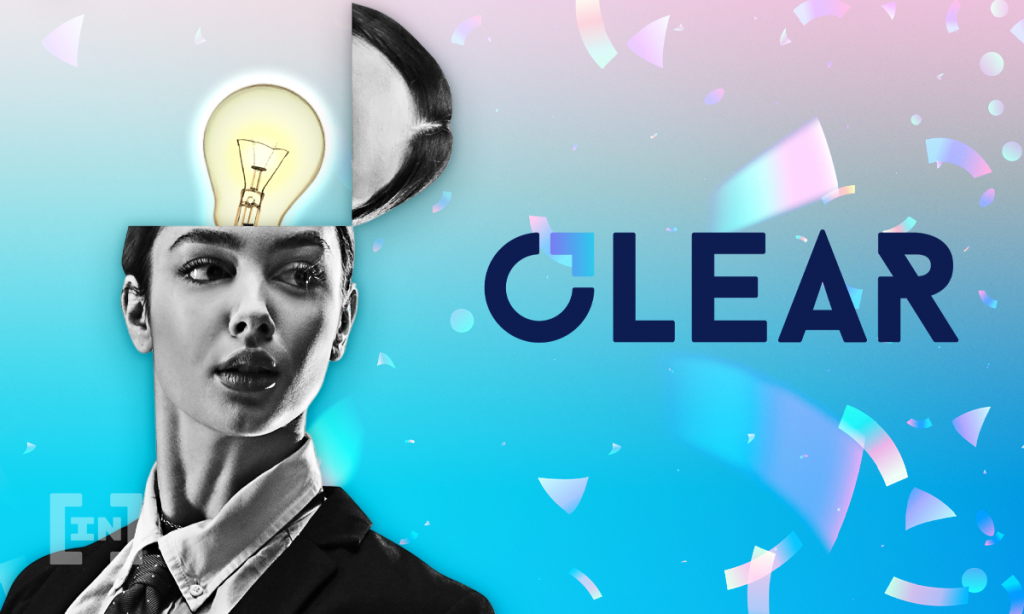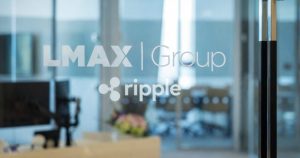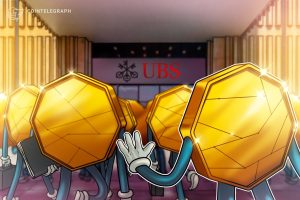ClearDao AMA Session With BeInCrypto

Hi Everyone! Welcome to another BeInCrypto AMA Session
Today we welcome Alpha (@alphac_c) who is a Core Contributor for the ClearDao project.
BeInCrypto (BIC): Here is how things will work. I’ll have 10 questions for him. After these questions, he will pick up 5 out of all the questions you asked before the session. Good luck to you all!
(This AMA has been edited for clarity)
BIC: Please introduce yourself and the team behind ClearDAO.
ClearDao: It’s great to be here with the BeInCrypto community. My name is Alpha. I am a core contributor to ClearDAO.
We are a team of 20 full-time members, with professional background in traditional finance, specifically flow and structured derivatives sales and trading, blockchain technology, and traditional media.
Many members of our team are seasoned participants in the crypto industry, with experience in early-stage investments, helping projects on marketing and community, and being directly involved in the building of technology infrastructure.
BIC: What is ClearDAO and what’s the vision of your team?
ClearDAO: ClearDAO is tackling the DeFi derivatives space, which as of now hasn’t really taken off. However, we expect DeFi to repeat what traditional finance has gone through, and eventually, the derivatives market size will be much larger than the spot market.
Based on our observation, there are currently 2 main problems that are preventing DeFi derivatives from getting traction.
The first problem is that most DeFi derivatives projects today are putting too much focus on their own platforms. These platforms offer exchange-traded (standard) derivatives, which in our opinion are not what the users want. This makes derivatives attractive to users in the bespoke aspect, which tailors to the needs of the buyers. This is quite obvious in traditional finance where OTC derivatives market size is way larger than exchange-traded derivatives.
We are taking an entirely different approach to DeFi derivatives. Instead of exchange-traded products, we are offering bespoke products. Instead of focusing on building one exchange, we are focusing on building the infrastructure that allows for multiple exchanges to build on top of it.
ClearDAO is building a DeFi derivatives SDK that enables developers to easily create bespoke derivatives and launch exchanges. Developers from all over the world should know what derivative products are popular in their regions. They can use the Clear SDK to quickly build these derivatives and launch their own exchanges.
By using the solution provided by ClearDAO, we can also introduce our ecosystem market makers and liquidity providers to our ecosystem exchanges. This can solve a major obstacle with new exchange platforms that is the initial liquidity. We have had a multi-chain strategy in place since the inception of the project. We will be on Binance Smart Chain, Arbitrum, Solana, and Ethereum. Then we will evaluate the next batch of blockchain ecosystems to support.
Our vision is to build a future where all DeFi derivatives are created, traded, cleared, and settled on a network of blockchains powered by ClearDAO.
BIC: Tell us about the Clear SDK.
ClearDAO: The Clear SDK is our flagship product. It has 3 main components:
1. Derivative workshop: This is where developers can create bespoke derivatives with a Lego-style mix and match approach.
Start by choosing the underlying asset, it can be a single fungible token (such as BTC), or a basket of tokens (such as 70% BNB + 30% ETH), or even an NFT collection (such as the CryptoPunk collection).
Then choose the derivative that you want to create. We are starting with barrier options and structured notes. Soon we will add support for perpetual futures and CDS (coin default swap).
Note that for each derivative product there are multiple parameters that can be adjusted. For example in our barrier option template, developers can specify whether the option is to call or put, strike price, maturity, barrier levels, and whether it is knock-in or knock-out.
Our goal is to cover as many derivative types as possible, so eventually, if you can dream up a derivative contract, the Clear SDK can build it out. Then theoretically if you want to build a DeFi derivative project, there is no reason not to use the Clear SDK.
2. Open marketplace: This component contains the open-source code for white label exchanges. We have already coded an automated trading platform, as this format is more familiar with DeFi users. Going forward if there is enough demand for an order book style trading platform, we can explore coding that out as well.
3. Risk Management Tools: We want to offer quantitative risk exposures to our users, so they can better manage portfolio risks and perform macro hedges. When trading in the spot market, usually knowing the current prices and the total value is enough for most users but this is not the case in derivative trading, especially for the purpose of hedging risks.
If you are trading options, you will want to know the greek risks, and if you are trading fixed income derivatives, you will want to know the duration and convexity risks. Our goal for the longer term is to offer these quantitative risks to our users and even metrics like VaR (value at risk) so our users can make informed decisions and not put on a trade and hope for the best.
BIC: What are the new technologies developed by ClearDAO?
ClearDAO: Most crypto projects are open source. It is easy to copy and paste, put on a new name or deploy on a different blockchain, and you are good to go.
But ClearDAO is not a copy and paste project. We have been developing for close to a year by now.
To give you an example of our original tech, we all know that NFT is the next frontier, and it goes well with the metaverse narrative.
Naturally, many dev teams are looking to offer NFT derivatives. We spent a lot of time on NFT derivatives. In DeFi, you need to use oracles like Chainlink for data feeds. It’s not hard to build derivatives on BTC, as we can use Chainlink for BTC price feeds.
But for NFT derivatives, none of the oracles currently offer NTF price feeds and NFT prices are easily manipulated so our approach to NFT derivatives is to offer derivatives on the entire NFT collection, not on a single NFT.
Since Chainlink does not yet offer NFT collection prices, we are building it from scratch. We grabbed all the historical traded prices from the OpenSea smart contract and other contracts to construct the NFT collection index price.
We use all the historical traded prices (not just the latest price) to make it less manipulate-able, and this is all coded and done.
When the Clear SDK is available for the public in the coming months, anyone can build CryptoPunks collection derivatives. There are tons of NFT collections coming out, and most of them, the price trends down to zero.
You want to own the best NFTs, and CryptoPunks is the best of the best, but the problem is that one punk is just too expensive. We will be offering CryptoPunks derivatives. You can buy these and have exposure to CryptoPunks, so if CryptoPunk’s price goes up, you will make a profit because you have CryptoPunks derivatives. This is just one of the many examples of our new tech.
BIC: Can you please tell us about your go-to-market strategy?
CLearDAO: Our flagship product is the Clear SDK that enables developers to quickly design derivatives and launch trading marketplaces. Our main business model is B2B2C.
But at the same time, there are too many crypto projects coming out every week. We know that just making the SDK available isn’t going to attract developers. So we will be launching the very first exchange built using the Clear SDK.
This exchange serves two purposes. The first purpose is to provide actual derivative trading to our users. They can purchase derivatives to enhance potential returns or to hedge risks. Through actual user activities, we can collect feedback to improve our SDK further. The second purpose is to showcase what the Clear SDK can do
We believe having a live exchange can better attract developers to actually give our SDK a try. Once our SDK and exchange are live, we will be working with ecosystem developers to help them through building out their derivative marketplaces. We are actually in discussion with a Korean team. So it is very likely that you will see a Korean derivative marketplace coming out in 2022 that’s powered by ClearDAO.
Our SDK will be made available to the public, so anyone can take it and build projects with it. We will also work with select developer communities and teams to launch derivative marketplaces that are up to our quality standards.
BIC: How can developers benefit from using the infrastructure built by ClearDAO?
ClearDAO: The benefits are massive. Coding out a derivative exchange from scratch and doing it well takes a team of experienced developers. With the Clear SDK, we are enabling developers with 2 years of professional experience to easily launch derivatives exchanges. So, this not only lowers the experience required, it also reduces development time.
As mentioned earlier, a common hurdle for new exchanges is initial liquidity. An exchange without liquidity is not able to attract users, and exchange without users is not able to attract liquidity providers. This is a tough problem to solve.
ClearDAO has forged strategic partnerships with world-class market makers and liquidity providers. Kronos Research, Redline, VRM are all our ecosystem partners. (plus an undisclosed one, to be announced soon). There are more top-tier confirmed partners that we will unveil in the near future.
Our partners are committed to injecting initial liquidity into our ecosystem exchanges. This effectively alleviates a major headache for our ecosystem developers. With much of the coding and initial liquidity out of the way, developers can spend more time on marketing and community building.
ClearDAO will also provide marketing support for our ecosystem projects, so they will be starting community and marketing with an initial base. We make building DeFi derivative platforms super easy. If a team has a good idea, with entry to mid-level coding experience, they can make it happen with the Clear SDK.
As also mentioned earlier, we identified 2 problems preventing DeFi derivatives from going mainstream. The first problem can be solved by incorporating customization into derivatives, which is exactly what the Clear SDK is for. The second problem has to do with the participants in DeFi.
They are not like the professional sophisticated investors on Wall Street who know derivatives inside out. Derivatives are unfamiliar to most DeFi participants, who really either don’t have time or don’t bother to learn about derivatives.
So to get these people interested in derivatives, it is very likely that extra incentives are needed. This could be accomplished by adding elements of farming, NFT, or gaming into derivatives to make the overall product package attractive or user experience fun.
Our ecosystem developers will be spending less time coding derivative products and exchange functionality.
This means they will have more time to think about the creative ways to incorporate derivatives with other elements to make DeFi derivatives desirable.
BIC: Is the project open source? What’s your plan to stay competitive?
ClearDAO: We are an open source project, just like any other amazing projects in crypto. Anyone can copy and paste our code, but our strength is with the community and our ecosystem will just keep growing. Our ecosystem projects will have to announce that they are powered by ClearDAO, just like projects using Chainlink have to announce they are using Chainlink.
When people start to realize ClearDAO is going to be successful, when they begin to fork our code, at that time, we would already have several ecosystem exchanges. We’ll have the strongest community that’s running the same code, and other dev teams forking our code just shows that our code is badass.
It’s like DEXs forking Uniswap code, and rebase projects forking Olympus code. Really, it just makes the original code so much stronger. Plus, we are not focusing on one exchange or one platform, we are building an entire ecosystem that is open to everyone. Once we have our brand recognized worldwide, it doesn’t really make sense to fork our code and be one step behind.
Uniswap and Olympus are doing their own platform, they are not building an ecosystem of platforms, so it can make sense to fork their code and launch a copy. But ClearDAO is already welcoming anyone to use our SDK and use our code to build things. I don’t see people will want to fork our code. They will analyze our project and eventually decide to join us.
BIC: Please introduce the governance aspect of the ClearDAO ecosystem.
ClearDAO: ClearDAO of course will have a DAO governance in place.
CLH is our project token, it is mainly used for governance. Our governance system is expected to be online in 2022, where DAO members can create proposals to be voted on by all token holders. The Clear SDK is the flagship product of our project.
Once we have developed everything laid out on our roadmap, our token holders can decide how to further improve the SDK. This can be support for a specific derivative product, new exchange functionality, or deployment for new blockchain ecosystems.
In addition, to steer the development progress of the Clear SDK, token holders can also vote to adjust the parameters on the marketplace that is managed by us. This can include changing the trading fees and improvement on the UI and more.
Besides using the token for governance purposes, the token can also be staked for yields. We are also looking to add more utilities to the tokens in the future. The ecosystem marketplaces launched by 3rd party developers with our support, their exchanges should incorporate use cases for the CLH token. So as our ecosystem matures, CLH will have more utilities and thus more value.
BIC: Any exciting news you would like to announce here today?
ClearDAO: ClearDAO is an ambitious project. We have been building since early 2021, and have lots of unique technologies created.
Our dev team is currently fine-tuning the details and making sure everything is functioning as intended. Our IDO/IEO is currently scheduled for Jan 2022. For the next several weeks we will be making some big announcements.
If I were you, I would join the ClearDAO Telegram community and stay up to date. The public alpha version of our barrier option marketplace is currently on BSC and Arbitrum testnets. Anyone can visit demo.cleardao.com and try it out.
For starters, we have a short guide to assist you along the way: Testnet guide
I would encourage everyone to give it a try. Once you have tried it, please be sure to join our Telegram group and let us know what you think of the public alpha. We would love to hear from you.
BIC: Could you please share all the links to your Social Media channels so that our community can get to know ClearDao a little better?
ClearDAO: I have all our project links prepared, here they are:
Website | Telegram | Twitter | Medium |
BIC Community: What is the difference between coin return swaps (TRS) and coin default swaps (CDS) and what benefits do both coins get?
ClearDAO: TRS (token return swap) is where two parties exchange the returns of two different underlying tokens.
For example, person A might want to receive the BTC return without holding BTC, so he can enter TRS to receive BTC returns, and pay USDT to return to the counterparty. In this case, if BTC has a negative return, person A will have to pay out the negative BTC return to the trade counterparty in addition to the USDT return.
CDS (coin default swap), is generally an insurance contract. The way we design it is that when the reference token, say XRP, gets delisted from a centralized exchange (such as Binance), then the CDS contract holder gets a payout.
We are exploring both TRS and CDS contracts and incorporating them in our SDK in the future.
BIC Community: Do your tokens have farming and staking usages and if yes what APR do you give to us?
ClearDAO: We will have farming/staking when our first exchange is live, likely in early Q2 of 2022 (date to be confirmed). The reward APR is not yet decided, but it’ll be attractive enough to reward our early users.
BIC Community: How will you minimize an “impermanence loss” risk as users provide liquidity in your Public pool that ClearDAO?
ClearDAO: This is a good question. so we do not require users to deposit 2 different tokens into two pools that should have equal value. (this is how Uniswap works).
Our liquidity providers only need to provide stable coins (USDT or USDC) into the liquidity pools. Our system will calculate the “fair price” for the derivative contract, and then we apply a profit margin on top of the fair price. So theoretically, for every automatic trade our system makes for the liquidity providers, there should be a profit margin embedded.
Our regular users pick the direction of the trade that they think will have a more profitable outcome, and since our liquidity providers take the opposite side of the trade, we are giving them a slight trade margin so they are not at a disadvantage.
BIC Community: There already are many derivatives solutions present for crypto, but most of them are either centralized or insufficient to meet the needs and demands of potential DeFi clients. So how will ClearDao be able to solve these issues?
ClearDAO: Most derivatives in DeFi/CeFi are standardized, and not tailored towards the needs of the buyers.
ClearDAO is taking a whole different approach to providing customizable derivatives that tailor towards the needs of the buyers.
In addition, we are providing the tools to build derivative products and marketplaces. We are not focusing on just one exchange.
Our strategy and product are both very different from what the current DeFi/CeFi derivatives are offering, and we believe we have a much better chance of succeeding.
BIC Community: These days, being a Multi-chain platform is an obligation to be considered a competitive project, so can you explain how many chains are you able to support?
ClearDAO: So as of now, we are already supporting: BSC, ETH, Solana, Arbitrum.
Essentially, we have coded our system in both Solidity and Rust languages.
We can support as many blockchains as possible as long as they are either Solidity or Rust compatible. so this means all L2 blockchains are within our scope. but we also will be selective and will deploy on the most active blockchain ecosystems.
Disclaimer
All the information contained on our website is published in good faith and for general information purposes only. Any action the reader takes upon the information found on our website is strictly at their own risk.














